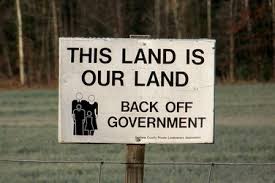
This is a bedrock of the 5th amendment that says private property can’t be taken without just compensation. So why did the federal government decide to take property at will in Texas with zero compensation. What tough choices were made that are now spawning multiple lawsuits? How will this decision impact property owners and lenders throughout the country? In TX federal and local governments chose to take certain properties by flooding some areas that were not impacted by the hurricane to save others. The property was “taken” without providing compensation to protect other areas. The outcome of these lawsuits will have far reaching consequences for property owners throughout the country.
Hurricane Harvey is going to provide an interesting test case that will impact private property rights throughout the country.
What happened?
There were areas around Houston that were not flooded from the initial hurricane. All the water from the storm began impacting dams upstream. To keep the dam from failing and impacting thousands of residents downstream, a decision was made to do controlled releases that would impact a much smaller number of homes. Basically, the decision was made to flood certain neighborhoods to protect a larger number of homes/infrastructure.
The lawsuits:
The lawsuits claim that the state and federal government “took” their property to protect other properties and therefore they should receive compensation. The property owners feel their properties were “condemned” to save others. See more details with links below
The Twist:
The case seems straightforward but there are many twists. In 1996 engineers mapped out what areas would likely flood (this neighborhood included) and a proposal to preempt the current disaster. Their plan was to spend 400m and install more drains/areas for runoff to be able to drain the flood reservoirs. The city nixed the idea as too expensive and allowed building in high risk areas that were known to be used as emergency spillways were a catastrophic event like Harvey were to occur. This ultimately occurred just as predicted and the areas were flooded to protect the integrity of the dam and the greater Houston area.
The implications:
Is the government allowed to pick winners and losers to protect the “public interest”? This happens every day via condemnation. For example, to build a new highway the government can take private property to benefit the great good. In this case the government must compensate private landowners for the “seizure”.
What if I had made a loan on a property (mortgage) that was essentially destroyed by the governments choices. The borrower likely would default since the property is likely now worthless (the majority didn’t have flood insurance) and the lender would be stuck with a a huge loss. Is the lender entitled to compensation for this loss? This is just one of many precedents the outcome of this case will set.
The cases in Texas are a bit unique since although the property was theoretically taken by the government when they flooded the area, the property was utilized as intended for a flood plain to protect the rest of the city.
Similar cases will play out throughout the country in various regions. For example, in Colorado there was a case where an area was allowed to burn due to a wildfire (including some houses) in order to protect other neighborhoods. Is this acceptable behavior by the government and who if anyone should be responsible for the property loss?
Why is this important?
Where is the “red line” in the sand for condemnation and who has to “eat” the cost of the condemnation? Is it condemnation if you build in a high hazard area that was intended to be flooded and who if anyone should compensate the homeowners who got flooded due to the government’s actions? The answer to these questions will impact every property owner, lender, and anyone involved in real estate and could drastically alter the definition of “seizure” by the government and private property rights. However this is decided will have long lasting impacts on property ownership and compensation/lack thereof.
Sources/Additional reading
https://www.courthousenews.com/houston-residents-blame-city-dam-related-flooding/
Written by Glen Weinberg, COO/ VP Fairview Commercial Lending. Glen has been published as an expert in hard money lending, real estate valuation, financing, and various other real estate topics in the Colorado Real Estate Journal, the CO Biz Magazine, The Denver Post, The Scotsman mortgage broker guide, Mortgage Professional America and various other national publications.
Fairview is a hard money lender specializing in private money loans / non-bank real estate loans in Georgia, Colorado, Illinois, and Florida. They are recognized in the industry as the leader in hard money lending with no upfront fees or any other games. Learn more about Hard Money Lending through our free Hard Money Guide. To get started on a loan all they need is their simple one page application (no upfront fees or other games).
